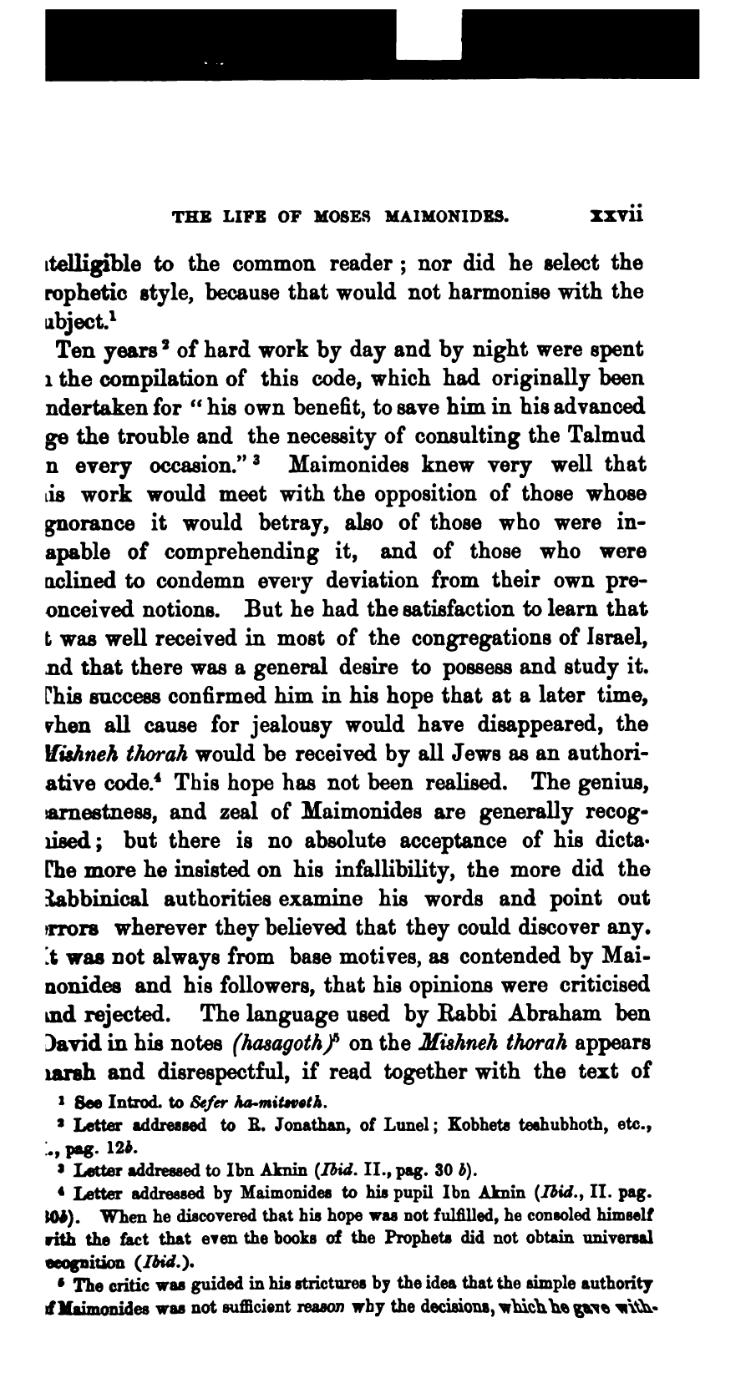?telli?'ble to the common reader; nor did he select the rophetic style, because that would not harmonise with the bject. x Ten years ? of hard work by day and by night were spent the compilation of this code, which had originally been ndertaken for "his own benefit, to save him in his advanced ge the trouble and the necessity of consulting the Talmud n every occasion." z Maimonides knew very well that work would meet with the opposition of those whose gnorance it would betray, also of those who were in- apable of comprehending it, and of those who were clined to condemu every deviation from their own pro- onceired notions. But he had the satisfaction to learn that ? was well received in most of the congregations of Israel, -d that there was a general desire to possess and study it. ?his success confirmed him in his hope that at a later time, vhen all cause for jealousy would have disappeared, the If/d?ne/? t/?rah would be received by all Jews as an authori- ative code. 4 This hope has not been realised. The genius, m*n?ess, and zeal of Maimonides are generally reccg- fiscal; but there is no absolute acceptance of his dicta. ['he more he insisted on his infallibility, the more did the ?abb?nlcal authorities examine his words and point out ,rrors wherever they believed that they could discover any. ?t was not always from base motives, as contended by Mai- nonides and his followers, that his opinions were criticised md rejected. The language used by Rabbi Abraham ben )avid in his notes (hasagothf on the M?sh?eh thorah appears mrah and disrespectful, ff read together with the text of 8es Intro& to &fo* Aa. mit?ett. Letter addressed to E. Jonathan, of Lunel; Kobhets toahubhoth, etc., IreS- 12&. Letter addrezzed to Ibn Aknin (/?/d. II., pa 8. 30 ?). Letter addressed by Maimonides to his pupil Ibn Aimin (/?/d., II. pag. ?I?). When he discovered that his hope was not fulfilled, he consoled himself rith the fact that even the books of the Prophet? did not obtain universal ?g?itiou (Ib/d.). The critic was guided in his strictures by the idea that the ?imple authority 6Malinehides was not mdticient reaz? why the deciaious,
Page:Guideperplexed v1.djvu/35
Jump to navigation
Jump to search
This page needs to be proofread.
THE LIFE OF MOSES MAIMONIDES.
xxvii
